We shall report here a few of AVMC’s donkey patients. More examples will be added later. While some of the described responses may seem surprising, they are genuine, they can be repeatable and the explanation is purely pragmatic. It is true to say, of course, that these results are NOT achievable in every case but they do show the possibilities. We have the full records of each of these cases.
 In the interests of transparency, we have also uploaded the results of ongoing case outcome monitoring, for interest. Click the link: Outcome Study.
In the interests of transparency, we have also uploaded the results of ongoing case outcome monitoring, for interest. Click the link: Outcome Study.
N.B.: This study includes only cats, dogs and horses.
The cases have been treated holistically, in some cases with an integrated program of different therapies. Holistic vet work involves working on the whole patient, taking into account environment, diet and lifestyle factors that may impinge on healing capability. The holistic vet cannot draw lines around a particular problem or issue. He or she must widen horizons to take in the whole picture.
The recurring theme is recovery, apparently against the odds. However, it is a fact that three factors (and only three) affect the chances of cure (or improvement).
They are:
- The body must have a relevant capability or mechanism for cure (or improvement).
- We must be able to find an effective medical stimulus for that mechanism (e.g. correct homeopathic medication).
- We must identify and remove any possible obstacles to recovery.
The name of the disease is not in that list, meaning that the disease name does not define the chances of positive outcome. This fact may explain the apparently ‘unlikely' outcomes, in so many cases. A few are shown here, to illustrate the capability of the body to heal itself, when given guidance and appropriate stimulus and when the constraints are removed.
We also have a small collection of ‘testimonial' letters, for interest. There are, of course, many of these that throw light on possible outcomes for certain diseases. We therefore recommend that you take a look.
The cases:
Koko – 30 y.o. Donkey gelding – Chronic Laminitis
First seen at home (Hertfordshire) on 24th May 2005 – chronic laminitis since just after Christmas, cannot be put on grass – in constant pain despite ‘bute' – advised by the Donkey Sanctuary (Sidmouth) not to consult AVMC – kept on deep wood chips – ‘owner' extremely diligent and careful but achieving no improvement – distressing case.
24th May 2005 – Prescribed homeopathic Pulsatilla and Hypericum, with herbal Willow bark and fresh herbs – changed to more suitable (natural) diet – advised limited grass allowance, at first, increasing as time goes on.
27th May 2005 – Requested powdered herbal supplement, as not able to find sufficient fresh herbs.
2nd June 2005 – Seems to be going very well – only needed to give ‘bute' twice since seen, which is a big improvement – quite perky.
10th June 2005 – Still shuffly on feet but going in the right direction – hoping for more rapid improvement – dose rate of homeopathic medication increased.
16th June 2005 – Steadily improving – no ‘bute' for a week now – happy in himself and eating food better – still hoping for more dramatic improvements.
22nd June 2005 – Revisited to give Acupuncture.
24th June 2005 – Walked to end of field yesterday, which not done for a while – not even lifting feet afterwards.
6th July 2005 – Revisit to repeat Acupuncture.
11th July 2005 – Lifting feet again after grass – feels not making the necessary breakthrough – advised specialist equine probiotic.
27th July 2005 – Doing very well if no grass at all, which is a big improvement but wishing he could have turn out.
2nd December 2005 – Doing very well – very naughty and feeling very well in himself – having a bit of grass and coping well.
15th December 2005 – Christmas Card – “A very happy donkey”.
2nd May 2006 – See again, ‘for fun', as so well.
In this case, although homeopathy and diet change were able to do so much for immediate welfare, with acupuncture bringing even more benefit, it was not until the probiotic had been added that final full improvement occurred, sufficient to allow a return to a ‘normal' lifestyle, thus showing the necessity for flexible approach and integrated medication.
One might wonder whether the Donkey sanctuary ever followed up this case, to learn the outcome.
